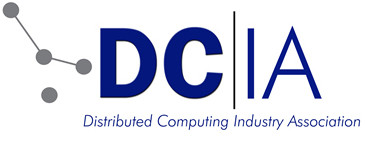In This Issue
- Cloud Drives Growth
- Reached Tipping Point
- Fog Market $18 Billion
- Report from the CEO
- Cybersecurity Thwarts
- Electric Grid Protection
- AT&T and AWS Expand
- BBVA with Telefonica
- Huawei Mobile AI Key
- Ways to Secure Cloud
- Edge & IoT Explosion
- Decentralize Compute
- Case of AI in the Cloud
- Computing to the Fog
- Will ARM Save the IoT?
- IoT Youth Job Creation
- Coming DCIA Events
Cloud Drives Massive Growth for Tech Firms
Excerpted from Reuters Report by Salvador Rodriguez
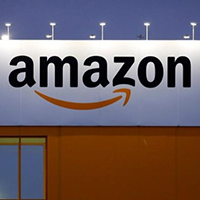 Amazon, Microsoft, Alphabet’s Google, and Intel are all putting their chips on the cloud computing business, and it is booming.
Amazon, Microsoft, Alphabet’s Google, and Intel are all putting their chips on the cloud computing business, and it is booming.
All four companies posted stellar quarterly earnings on Thursday, showing the strength of the shift in corporate computing away from company-owned data centers and to the cloud.
Microsoft’s Azure business nearly doubled, with year-over-year growth of 90 percent.
The company does not break out revenue figures for Azure, but research firm Canalys estimates it generated $2 billion for Microsoft.
“The move to the cloud was one we felt Microsoft could always benefit from, and they’re showing us that they can,” said Kim Forrest, Vice President and Senior Equity Analyst at Fort Pitt Capital Group, a portfolio management firm.
Highlighting the quarter for Microsoft was a deal securing retailer Costco as an Azure customer.
That came just two months after the close of Amazon’s acquisition of grocery chain Whole Foods… Read More
We’ve Reached Cloud Tipping Point
Excerpted from Beta News Report by Robert Cringely
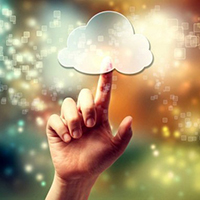 Between technology waves there is always a tipping point.
Between technology waves there is always a tipping point.
It’s not that moment when the new tech becomes dominant but the moment when that dominance becomes clearly inevitable.
For cloud computing I think the tipping point arrived a month ago. That future is now.
This is a big deal. My count of technical waves in computing may not agree with yours but I see 1) batch computing giving way to 2) timesharing which gave way to 3) personal computers which gained 4) graphical user interfaces, then became 5) networked Internet computers and 6) mobile computers embodied in smartphones and tablets, and now we have 7) the cloud.
This seventh generation of computing will, within 3-5 years, absorb the vast majority of the approximately $1 trillion we spend in the USA each year on IT.
If I am correct, your PC three years from now won’t be a PC at all but a PC-shaped chunk of cloud accessed through many types of devices, with the desktop PC itself almost dead except for gamers… Read More
Fog Market to Exceed $18 Billion by 2022
Excerpted from OpenFog Consortium Press Announcement
 The fog computing market opportunity will exceed $18 billion worldwide by the year 2022, according to a new report by 451 Research.
The fog computing market opportunity will exceed $18 billion worldwide by the year 2022, according to a new report by 451 Research.
Commissioned by the OpenFog Consortium, the Size and Impact of Fog Computing Market projects that the largest markets for fog computing will be, in order, energy/utilities, transportation, healthcare, and the industrial sectors.
New use cases created by the OpenFog Consortium were also released that showcase how fog works in industry.
These use cases provide fog technologists with detailed views of how fog is deployed in autonomous driving, energy, healthcare, and smart buildings.
“Through our extensive research, it’s clear that fog computing is on a growth trajectory to play a crucial role in IoT, 5G and other advanced distributed and connected systems,” said Christian Renaud, research director, Internet of Things, 451 Research, and lead author of the report.
“It’s not only a technology path to ensure the optimal performance of the cloud-to-things continuum, but it’s also the fuel that will drive new business value.” Key findings from the report were presented during an opening keynote… Read More
Report from DCIA CEO Marty Lafferty
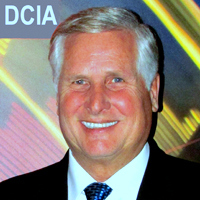
The DCIA commends US lawmakers Senator Ed Markey (D-MA) and Congressman Ted Lieu (D-CA) for introducing the Cyber Shield Act of 2017, which would establish an elective cybersecurity program for internet-connected devices under the direction of the Department of Commerce.
The measure represents common-sense steps that, if followed, would boost productivity and lead to improved cybersecurity, which in turn would help enable the advancement of the internet of things (IoT).
We therefore urge Republican lawmakers to consider the proposal on a bipartisan basis.
The legislation would set up a voluntary system for IoT device manufacturers to choose at their option to have their products evaluated and certified for meeting set benchmarks on cyber and data security.
Specifically the bill would direct the Secretary of Commerce to convene an advisory committee made up of business leaders, cybersecurity experts, academic representatives, public interest advocates, and federal agency employees with backgrounds in device certification and cybersecurity.
The committee would produce recommendations on cybersecurity benchmarks, which would be finalized by the Commerce Department within two years of the bill’s enactment.
The goal would be to have manufacturers hold themselves to well-defined security “standards, guidelines, best practices, methodologies, procedures, and processes,” and be able to publicly present themselves as compliant with such measurements.
Companies that choose to meet the benchmarks would have their products verified and labeled as approved through the program.
Manufacturers that have self-certified their products as meeting the standards could display a “Cyber Shield” label similar to a “Good Housekeeping” seal of approval.
We agree with Congressman Lieu that the legislation would incentivize industry leaders to seek inventive solutions to cyber intrusions while empowering consumers to make smart purchases.
Senator Markey also noted that, “With as many as 50 billion IoT devices projected to be in our pockets and homes by 2020, cybersecurity will continue to pose a direct threat to economic prosperity, privacy, and our nation’s security.”
Share wisely, and take care.
Cybersecurity Thwarts Productivity & Innovation
Excerpted from StateScoop Report by Colin Wood
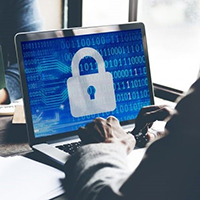 The top priority of most organizations – cybersecurity – is hindering productivity and innovation, according to a recent report by Silicon Valley-based virtualization firm Bromium.
The top priority of most organizations – cybersecurity – is hindering productivity and innovation, according to a recent report by Silicon Valley-based virtualization firm Bromium.
Based on a survey of 500 chief information security officers in large organizations in the US, UK, and Germany, 74 percent of respondents said end-users were frustrated by how security requirements disrupt operations.
“Our research found, on average, an organization gets complaints from users twice a week saying that legitimate work activity is being blocked or rejected by over-zealous security systems,” the report reads.
Citing that most – 88 percent – of organizations use a prohibition approach to cybersecurity, the firm suggests “a new approach” that allows more technological innovation within the organization.
“The way security works today is broken,” said Ian Pratt, Bromium’s President and Co-Founder.
“It is unacceptable that end users are making help desk requests just to download documents and access websites they need to do their job.”
Of those surveyed, 81 percent said they viewed security as a hurdle to innovation, according to the report published earlier this month… Read More
Cybersecurity Experts Urge Electric Grid Protections
Excerpted from Daily Energy Insider Report
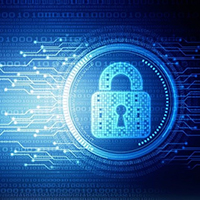 Testifying before the Senate Energy and Natural Resources Committee, Dr. Duncan Earl, a former Department of Energy (DoE) scientist now President and Chief Technology Officer at Qubitekk, explained an emerging cyber method known as quantum technology that uses quantum physics to create secret keys that cannot be cracked, preventing communications from being altered or intercepted.
Testifying before the Senate Energy and Natural Resources Committee, Dr. Duncan Earl, a former Department of Energy (DoE) scientist now President and Chief Technology Officer at Qubitekk, explained an emerging cyber method known as quantum technology that uses quantum physics to create secret keys that cannot be cracked, preventing communications from being altered or intercepted.
“To speed the adoption of this technology, though, will require government action,” said Earl, who insisted the Chinese are ahead of the United States in this field.
“With government support, a nationwide quantum-protected network between substations can be built, creating an impenetrable shield around our grid’s communication channels.”
Senator Lisa Murkowski (R-AK), the Chairman of the Committee, said she called the hearing on examining cyber technology and energy infrastructure to explore how the United States can “harden the grid from constantly evolving cyber intrusions.”
“It seems like every day now we hear about an attempted hack or actual breach that has taken place,” said Murkowski… Read More
AT&T Expands Strategic Relationship with AWS
Excerpted from AT&T Press Announcement
 AT&T is expanding business cloud networking solutions with Amazon Web Services (AWS).
AT&T is expanding business cloud networking solutions with Amazon Web Services (AWS).
AWS customers using AT&T connectivity can now have highly secure, flexible connectivity options to serve their cloud, cybersecurity, and mobility needs.
These solutions can help customers mobilize their workforce to support the digital age.
“Many of our customers are on their journey to the cloud with AWS,” said Roman Pacewicz, Chief Product Officer, AT&T Business.
“We can offer customers a highly secure, cloud optimized networking environment.”
“No matter where they are in that transition or how they want to get there, AT&T has it covered.”
“Business customers rely on AT&T for proven network connectivity, cybersecurity and IoT solutions.”
“These new enhancements provide our customers with the performance, security and connection options they need to grow their businesses on AWS,” said David Wright, General Manager, Worldwide Strategic Technology Partners, Amazon Web Services… Read More
BBVA Global Networking Alliance with Telefonica
Excerpted from FinExtra Report
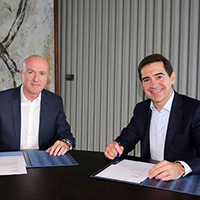 BBVA today signed a global strategic agreement with Telefonica that will allow the bank to optimize its communications, increase the capacity of its technological network, and facilitate operations in the cloud.
BBVA today signed a global strategic agreement with Telefonica that will allow the bank to optimize its communications, increase the capacity of its technological network, and facilitate operations in the cloud.
The accord, by which Telefonica becomes a priority partner of BBVA, adds to the series of alliances that the group is making with strategic partners, in order to become a more flexible and scalable digital bank.
BBVA CEO Carlos Torres Vila and Angel Vila Boix, COO of Telefonica, signed the agreement in Madrid.
“Communication and technology are key levers for BBVA as we progress in our transformation process, in order to offer our clients digital products and services that will help them reach their goals.”
“This agreement with Telefonica reinforces our strategy of becoming the bank with the best solutions for making a positive impact on peoples’ lives,” said Carlos Torres Vila.
Telefonica COO Angel Vila Boix added, “BBVA is an international benchmark in digital transformation in its sector and we are very pleased to collaborate in this process as a strategic partner.”
“This agreement is another example of Telefonica’s objective of offering our customers the best solutions… Read More
Huawei’s Mobile AI Tech Key to GDPR Preparations
Excerpted from The Drum Report by Rebecca Stewart
 With one in seven companies still unprepared for GDPR, Huawei is in the enviable position of having a “three pillar” plan to safeguard itself ahead of the May deadline.
With one in seven companies still unprepared for GDPR, Huawei is in the enviable position of having a “three pillar” plan to safeguard itself ahead of the May deadline.
The Chinese electronics giant not only wants to be compliant but to to set a new standard for how things should be done, according to the company’s chief marketing officer for Western Europe, Andrew Garrihy.
The multi-pronged strategy covers three specific areas: design processes, business operations and, crucially, its hardware.
Having already curbed the iPhone’s momentum in China, Huawei is now the world’s number three smartphone brand behind Apple and Samsung with an 8.3% market share according to Gartner data.
Over the past year it has had its sights firmly set on gaining more traction in Europe, upping its core marketing staff count from five to 35 and moving the team’s HQ to London from Dusseldorf in what Garrihy has described as a “rapid growth journey.”
Despite its larger mission, Huawei has not let preparation for GDPR – which comes into force in May 2018 – fall to the wayside… Read More
Ways to Improve Security of Cloud Computing
Excerpted from The Future of Things Report
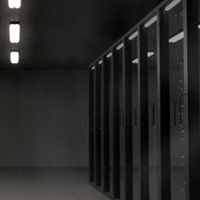 Are you extremely hesitant about adopting a cloud computing service within your IT infrastructure?
Are you extremely hesitant about adopting a cloud computing service within your IT infrastructure?
Well, know that you are not alone.
Data security is one of the leading concerns for several IT professionals especially when the problem comes to cloud computing.
Most of the services which are popular on the internet are just not well equipped to address most privacy and security needs of the data sensitive organizations.
Since public cloud services mostly offer the server instances for most clients on the same hardware, all your valuable data may get lost in the clouds if you have little control over where your data lives.
Private cloud computing mostly allows for the maximum control that various HIPAA and PCI sensitive organizations need over their data.
Whenever it comes to security, the significance of control regarding your environment just can’t be overstated… Read More
Edge Computing Makes Most of IoT Explosion
Excerpted from Tech Wire Asia Report by Samanth Cheh
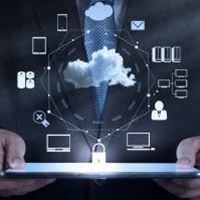 Move over, cloud computing – edge computing is quickly coming into vogue as an alternative form of processing data, and as more internet of things (IoT) devices flood the market, the need for the close-contact computations of edge devices is becoming evident.
Move over, cloud computing – edge computing is quickly coming into vogue as an alternative form of processing data, and as more internet of things (IoT) devices flood the market, the need for the close-contact computations of edge devices is becoming evident.
Edge computing can be a bit confusing to understand, but it’s essentially decentralizing computing operations by moving it away from the cloud and into smaller data centers near various data collection devices.
According to Tony Gaunt, a senior director of colocation, cloud, and BFSI at communications services company Vertiv, edge computing is a way of optimizing cloud computing.
The “edge” in edge computing comes from the fact that these solutions allow data to be processed near the source of a network.
“A useful way to think about the edge would be like operating on the cloud except much quicker in terms of speed while not being connected to the web constantly,” Gaunt said in an email interview with Tech Wire Asia.
Edge computing is an incredibly useful form of computing as it bypasses the generally weak Internet infrastructure… Read More
Future of Computing Is Decentralized Cloud
Excerpted from Data Center Knowledge Report by Siavash Alamouti
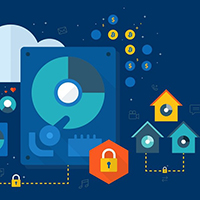 The internet of things (IoT) has been a hot area in the last few years.
The internet of things (IoT) has been a hot area in the last few years.
The number of connected devices has been growing steadily with Gartner forecasting that IoT devices will outnumber the world’s population in 2017: 8.4 billion connected things in 2017 and 50 billion in 2020.
These connected devices generate massive amounts of data.
Today, devices and appliances that were not previously connected (fridges, cars, watches, etc.) are equipped with sensors and peripherals that generate data.
Alongside IoT, enterprises are betting hard on big data.
Data is the most precious resource of our digital economy.
Many enterprises are applying big data analytics to harness this vast amount of data and take advantage of the insights it provides: identifying trends and patterns to deliver improved services and experiences to their customers, helping companies monitor and streamline their operations, or perform preventive maintenance of machinery and infrastructure… Read More
The Curious Case of AI in the Cloud
Excerpted from ET Tech Report by Alex Jaimes
 We’re living through the most significant technological shift in human history.
We’re living through the most significant technological shift in human history.
Our smartphones are connected to thousands of computers and access terabytes of data, and whether we realize it or not, our lives are heavily impacted by algorithms – our news feeds, the products we buy, our food, our transportation, etc.
The shift is significant, not so much because we have access to unlimited computational power and data, but rather, because a larger number of things is now measurable.
The confluence of unlimited computational power and unlimited data, in conjunction with continuous advances in algorithms and hardware, mean that Machine Learning (ML) is the driving force of this major technological shift – and that is significant because computers will play an increasingly important role in our decision-making and ML in how the technology works.
On one hand, measuring at scale allows Machine Learning algorithms to make better predictions which help individuals and businesses make decisions. On the other hand, it feeds the improvement of algorithms that perform tasks that are better suited… Read More
Computing Heads into the Fog
Excerpted from Recode Report by Bob O’Donnell
 Many scary movies have at least one scene where someone – or something – emerges from the fog.
Many scary movies have at least one scene where someone – or something – emerges from the fog.
There’s something about fog that’s both a bit eerie and yet intriguing – we can’t seem to help it, but we want to see what appears from it.
Surprisingly, the future of computing may actually be one of those things.
But, in this case, its emergence shouldn’t be seen as frightening, but instead, as a very exciting and intriguing new development.
I’m talking specifically about the relatively new, but little understood, concept of “fog computing.”
The basic idea of fog computing is to leverage the key new software technologies, processes and applications built to take advantage of cloud computing infrastructure, but deployed on computing hardware closer to the edge of the network.
Thus, it’s about bringing the cloud close to the ground – hence the tern fog… Read More
Can ARM Save the Internet of Things?
Excerpted from Naked Security Report by John Dunn
 At last, a glimmer of hope that a company with industry clout might be about to impose order on flaky internet of things (IoT) security.
At last, a glimmer of hope that a company with industry clout might be about to impose order on flaky internet of things (IoT) security.
The savior-in-waiting is ARM’s open source Platform Security Architecture (PSA), announced this week at the company’s TechCon show, a reference spec for which was promised for early 2018.
Terms like “architecture”, “framework” and “platform” can sound a bit abstract but the gist of the PSA is that it does a lot of difficult legwork for companies who fancy using ARM’s hardware to build their own IoT products and services.
Before designing anything, ARM’s engineers say they modeled likely attacks on different kinds of IoT devices before working out how to protect them.
For example, smart meters are a common IoT device vulnerable to remote attacks which, ARM reasons, can only be protected against by wrapping the meter in verified boot architecture (to stop firmware tampering), based on strong crypto, with a trust architecture to manage it.
What they’ve come up with is the open-source Trusted Firmware-M… Read More
IoT Will Create Jobs for Youth
Excerpted from The Hindu Times Report from Kurnool
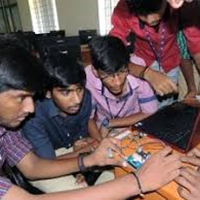 Internet of things (IoT) and its applications in various sector such as health care, education, agriculture, and retail trade are expected to create jobs for youth in the coming years, speakers asserted in a three-day workshop at G Pulla Reddy College of Engineering and Technology in Kurnool.
Internet of things (IoT) and its applications in various sector such as health care, education, agriculture, and retail trade are expected to create jobs for youth in the coming years, speakers asserted in a three-day workshop at G Pulla Reddy College of Engineering and Technology in Kurnool.
With a view to creating a vibrant IoT ecosystem in Andhra Pradesh, “iBootup IoT Series,” a joint initiative of iB Hubs, a PAN-India startup hub, and AP Innovation Society conducted the workshop.
During the elaborate workshop, IoT enthusiasts gained insights into the fundamentals of IoT and its applications in various sectors.
Students not only watched live demonstration of IoT product prototypes but had a hands-on experience in building prototypes using the iB Hubs Hardware Development Kit.
Talking about the initiative, Kavya Dommeti of iB Hubs, said, iBootUp IoT Series is much more than just introducing IoT to students and equips them to build their careers in the IoT domain and become the pillars of innovation in the Indian IoT ecosystem. Speaking about the vision of iBootUp, Ms. Kavya said the company has been promoting entrepreneurship… Read More
Coming Events of Interest
Industrial Internet of Things (IoT) Europe — November 7th and 8th in Munich, Germany. IoT Europe will bring together forward-thinking companies from the manufacturing, energy, and transportation sectors to pave the way for the Industrial IoT revolution.
Government Video Expo & National Drone Show — November 28th-30th in Washington, DC. The 22nd annual GVE will feature a full exhibit floor with numerous training options, free seminars, keynotes, networking opportunities, and five new educational pavilions.
CES — January 9th through 12th in Las Vegas, NV. Organized by the Consumer Technology Association, this large annual event typically hosts presentations of new products and technologies in the consumer electronics industry.
Industry of Things World USA 2018 — March 7th through 9th in San Diego, CA will bring together the entire industrial internet of things (IIoT) ecosystem for this third annual event featuring three days of high level networking and learning.
Delivery of Things World 2018 — April 23rd and 24th in Berlin, Germany. Meet the most influential DevOps practitioners and experts and discuss what DevOps means for your business.
